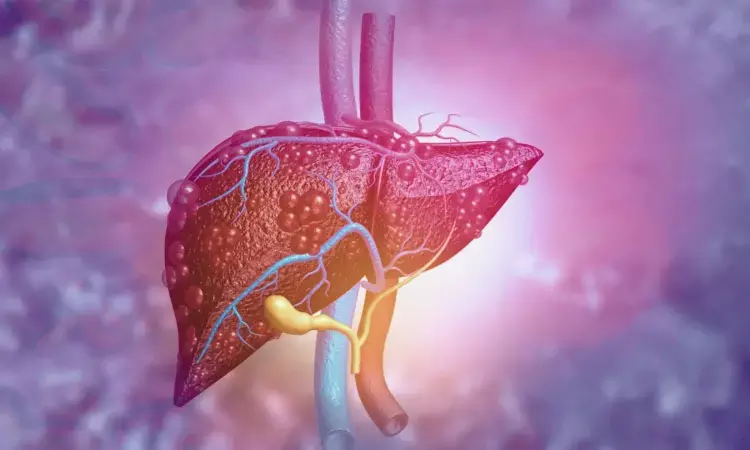- Home
- Medical news & Guidelines
- Anesthesiology
- Cardiology and CTVS
- Critical Care
- Dentistry
- Dermatology
- Diabetes and Endocrinology
- ENT
- Gastroenterology
- Medicine
- Nephrology
- Neurology
- Obstretics-Gynaecology
- Oncology
- Ophthalmology
- Orthopaedics
- Pediatrics-Neonatology
- Psychiatry
- Pulmonology
- Radiology
- Surgery
- Urology
- Laboratory Medicine
- Diet
- Nursing
- Paramedical
- Physiotherapy
- Health news
- Fact Check
- Bone Health Fact Check
- Brain Health Fact Check
- Cancer Related Fact Check
- Child Care Fact Check
- Dental and oral health fact check
- Diabetes and metabolic health fact check
- Diet and Nutrition Fact Check
- Eye and ENT Care Fact Check
- Fitness fact check
- Gut health fact check
- Heart health fact check
- Kidney health fact check
- Medical education fact check
- Men's health fact check
- Respiratory fact check
- Skin and hair care fact check
- Vaccine and Immunization fact check
- Women's health fact check
- AYUSH
- State News
- Andaman and Nicobar Islands
- Andhra Pradesh
- Arunachal Pradesh
- Assam
- Bihar
- Chandigarh
- Chattisgarh
- Dadra and Nagar Haveli
- Daman and Diu
- Delhi
- Goa
- Gujarat
- Haryana
- Himachal Pradesh
- Jammu & Kashmir
- Jharkhand
- Karnataka
- Kerala
- Ladakh
- Lakshadweep
- Madhya Pradesh
- Maharashtra
- Manipur
- Meghalaya
- Mizoram
- Nagaland
- Odisha
- Puducherry
- Punjab
- Rajasthan
- Sikkim
- Tamil Nadu
- Telangana
- Tripura
- Uttar Pradesh
- Uttrakhand
- West Bengal
- Medical Education
- Industry
Better Blood Sugar Control May Slow Liver Stiffness Progression in MASLD: Study Finds

China: A recent study published in Clinical Gastroenterology and Hepatology has highlighted the significant impact of type 2 diabetes (T2D) and long-term blood sugar management on the progression of metabolic dysfunction-associated steatotic liver disease (MASLD).
Led by Xiao-Dong Zhou and colleagues from the MASLD Research Center at Wenzhou Medical University, China, the research provides key insights into how glycemic control may influence liver health outcomes in patients with MASLD.
The study analyzed data from 7,543 patients with MASLD participating in the VCTE-Prognosis cohort, who underwent serial vibration-controlled transient elastography (VCTE) assessments and hemoglobin A1c (HbA1c) measurements over a median follow-up of 4.1 years. Among these patients, 4,090 had T2D—split evenly between well-controlled (HbA1c <7%) and poorly controlled (HbA1c ≥7%) diabetes—while 3,453 did not have T2D.
The study led to the following notable findings:
- MASLD patients with type 2 diabetes had a 50% higher risk of liver stiffness progression compared with patients without diabetes (HR 1.50).
- T2D in MASLD patients was associated with a two-fold increased risk of liver-related events (LRE) such as cirrhosis, hepatic decompensation, or hepatocellular carcinoma (HR 2.03).
- Among MASLD patients with T2D, those with good long-term glycemic control showed slower liver stiffness progression compared with those with poor control (HR 1.52).
- Glycemic control did not significantly affect liver stiffness regression.
- Glycemic control also did not alter the incidence of liver-related events, indicating that optimal blood sugar management may slow progression but may not reverse established liver damage.
“Our findings emphasize the critical role of maintaining optimal glycemic control in patients with MASLD who also have type 2 diabetes,” said the researchers. “Effective diabetes management could help slow the progression of liver stiffness, potentially reducing long-term complications, even if it does not fully reverse liver damage or prevent liver-related events.”
The study’s methodology incorporated time-weighted average HbA1c to capture both the magnitude and duration of glycemic exposure, providing a more comprehensive assessment of long-term glycemic control. Kaplan–Meier analyses and Cox proportional hazards models confirmed the robustness of the findings, which were consistent across multiple sensitivity analyses.
Given the rising prevalence of MASLD and its overlap with T2D worldwide, the authors suggest that early identification and stringent management of diabetes in MASLD patients could be a key strategy to mitigate disease progression. They also call for further prospective studies to explore interventions that may prevent liver-related complications and improve long-term outcomes in this high-risk population.
"The study demonstrates that type 2 diabetes significantly worsens liver stiffness progression and liver-related outcomes in MASLD. While optimal glycemic control can slow the progression of liver stiffness, it does not appear to affect regression or liver-related events, highlighting the importance of early management and ongoing monitoring in this patient population," the authors concluded.
Reference:
Zhou, X., Chen, Q., Kim, S. U., Yip, T. C. F., Petta, S., Nakajima, A., Tsochatzis, E., Boursier, J., Bugianesi, E., Hagström, H., Chan, W., Romero-Gomez, M., Calleja, J. L., De Lédinghen, V., Castéra, L., Sanyal, A. J., Goh, B. G., Newsome, P. N., Fan, J., . . . Zheng, M. (2025). Long-Term Glycemic Control and the Risk of Liver Stiffness Progression and Liver-Related Events in MASLD. Clinical Gastroenterology and Hepatology. https://doi.org/10.1016/j.cgh.2025.10.003
Dr Kamal Kant Kohli-MBBS, DTCD- a chest specialist with more than 30 years of practice and a flair for writing clinical articles, Dr Kamal Kant Kohli joined Medical Dialogues as a Chief Editor of Medical News. Besides writing articles, as an editor, he proofreads and verifies all the medical content published on Medical Dialogues including those coming from journals, studies,medical conferences,guidelines etc. Email: drkohli@medicaldialogues.in. Contact no. 011-43720751
Next Story


